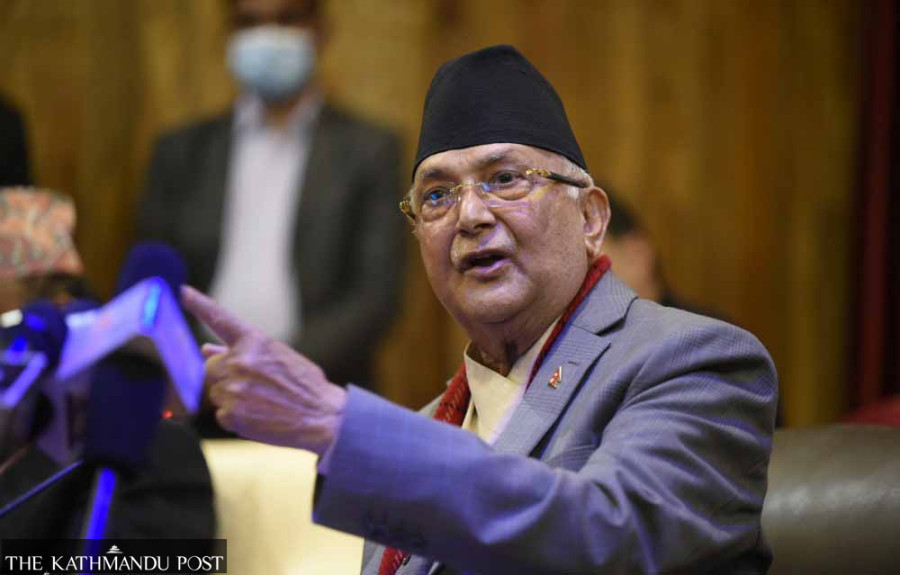Politics
Passports of Oli, four others who worked under him, frozen
Officials in the former administration are being probed for the suppression of Gen Z protests that left 75 dead.
Post Report
The government has frozen the passports of former prime minister KP Sharma Oli and four other officials in connection with the violent suppression of the nationwide Gen Z protests on September 8 and 9.
On Sunday, the home ministry moved to freeze the passports on the recommendation of the judicial commission investigating the suppression. On September 8, nineteen youths were killed in and around the federal parliament building at New Baneshwar when police used live ammunition to prevent the advance of youths, who were protesting rampant corruption and a ban on social media. The death toll climbed to 75 over the following days.
Those facing passport freeze include Ramesh Lekhak, then home minister, then home secretary Gokarna Mani Duwadi, then National Investigation Department chief Hutaraj Thapa, and then chief district officer of Kathmandu, Chhabi Rijal, according to a statement issued by Bigyan Raj Sharma, a member of the judicial commission.
Following the government decision, the five will not be able to leave the country. Also, they have been barred from leaving the Kathmandu Valley, according to officials.
Commission chair Gauri Bahadur Karki said the decision was made to ensure accountability as inquiries progress.
“We may require additional human resources to complete the investigation effectively, and we will request support from the home ministry,” Karki said on Sunday.
This is one of the most high-profile actions since the interim government formed after the Gen Z uprising pledged to investigate the killings of 19 young demonstrators on September 8 and subsequent incidents of violence and killings the next day.
Meanwhile, the CPN-UML has objected to the passport freeze.
A secretariat meeting which was underway at Bhaktapur at the time on Sunday, promptly reacted to the government decision. “The secretariat meeting expresses a serious objection to this act of political revenge,” a statement issued by the party read.
Public anger has grown over the state’s heavy-handed response, which saw widespread arrests and beatings of student activists. Families of victims and human rights defenders have been demanding not just truth and compensation, but also legal consequences for those responsible for the killings.
The investigation remains politically sensitive, as Oli still holds sway over the CPN-UML, the second-largest party in the dissolved House of Representatives.
The judicial inquiry was formed by a Cabinet meeting on September 21.
The commission’s decision comes a day after Oli expressed his anger over the reports that the authorities were considering withholding the passports of several top officials of the immediate past government.
Addressing a gathering of party cadres loyal to him on Saturday, Oli expressed his anger against the Sushila Karki government.
“Now the government is talking about revoking my privileges, withholding my passport, filing cases against me. They’re throwing the country into insecurity—shouldn’t they be responsible for ensuring security?” he told the gathering on Saturday.
Whether this recommendation leads to prosecutions or fizzles out like many past commissions will determine if the government’s pledge for accountability can restore public trust.
The Oli government was toppled on the second day of the Gen Z protests.
The National Human Rights Commission (NHRC) has blamed the Oli government’s failure to anticipate the intensity of the Gen Z demonstrations as well as the declining morale of security agencies for the huge loss of lives and property.
Issuing a brief monitoring report on Friday, the constitutional rights watchdog said the first half of the protests on September 8 was peaceful. “Monitoring revealed that the deaths caused by police firing on the first day led to indiscriminate arson and vandalism on the second day,” the NHRC report reads.




 13.12°C Kathmandu
13.12°C Kathmandu













